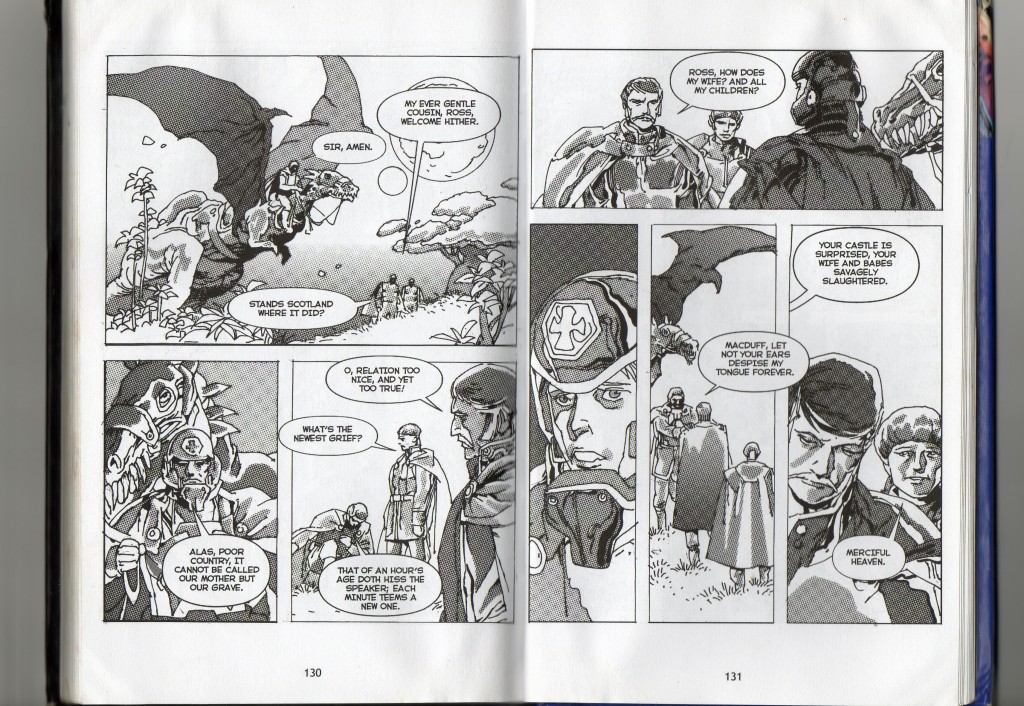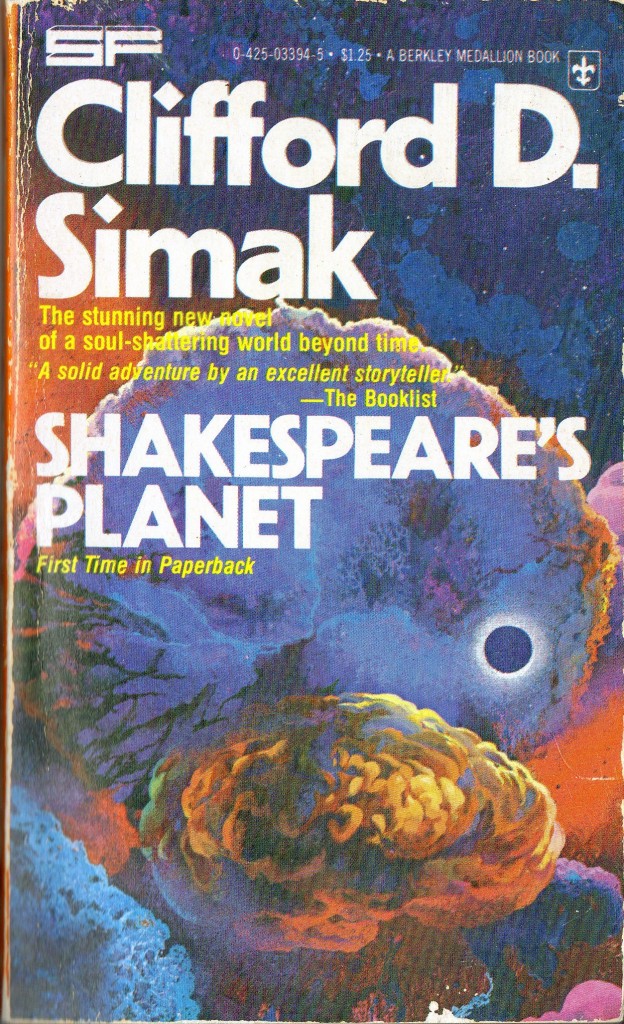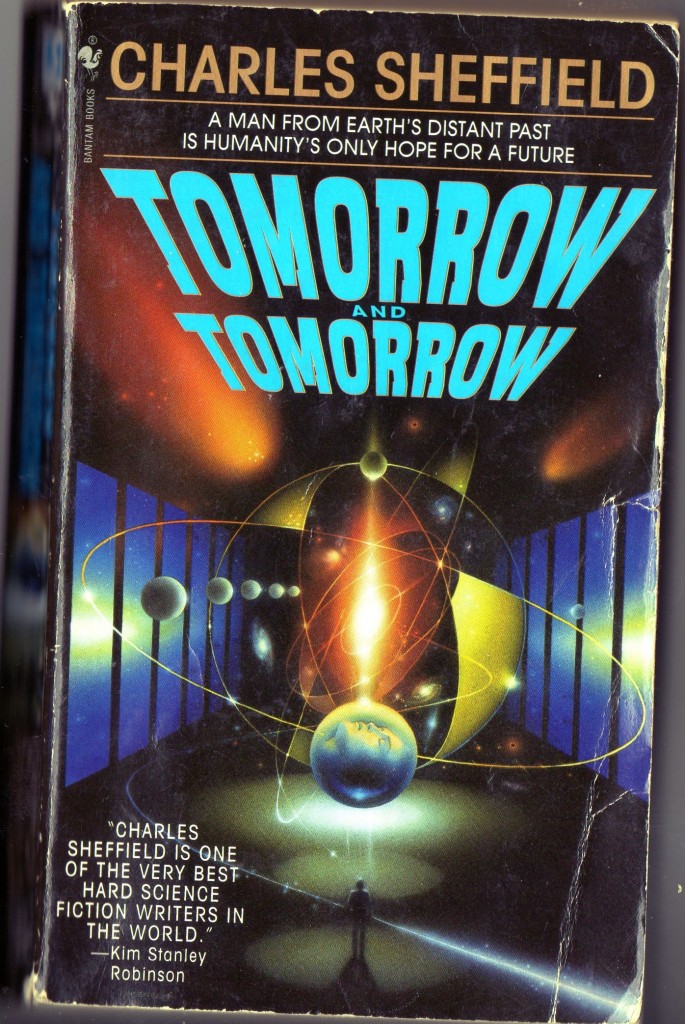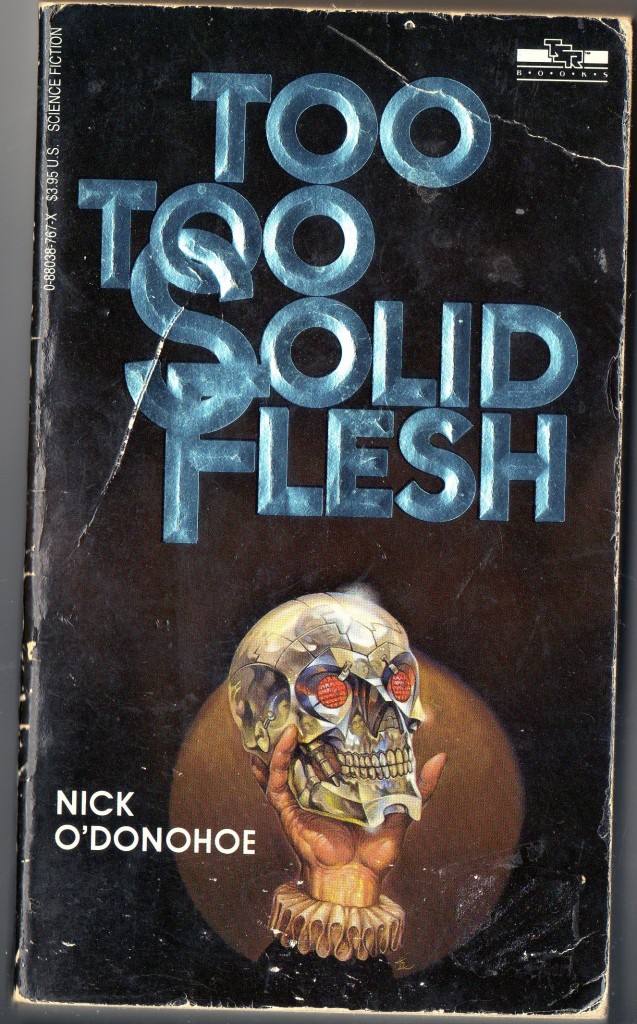
William Shakespeare’s Macbeth: The Graphic Novel
Illustrated by Tony Leonard Tamai with Alex Nino. Script by Arthur Byron Cover. (Puffin Books 2005)
Most graphic novels based on classic lit, whether the original source is play or book, are content to let the medium be the message. They refrain from adding new interpretive spins on the material, trying not to stray from what they’ve determined are accessible mainstream renditions. For no good reason, they hold themselves back.
Not William Shakespeare’s Macbeth: The Graphic Novel. It’s set in “Stardate: 1040.” The warriors ride on flying dragons. There are at least a dozen MacBeth graphic novels out there, including a modern “Manga Shakespeare” adaptation with ninja light sabers. But none goes so far as this one.

Available through Amazon, you can also find William Shakespeare’s Macbeth: The Graphic Novel in a lot of libraries. I love that it bears this statement on its cover: “For sale in the educational market only.” Thanks for casting Macbeth with dragons and robots, guys, then chilling the buzz with that word “educational.”

Shakespeare’s Planet by Clifford D. Simak (1976, Berkeley Medallion Books)
The Shakespeare of the book’s title is an impostor, but he’s done more than borrow the playwright’s name. He’s started his own sort of Prospero-esque existence with aliens and robots. Moreover, he’s scrawled his memoirs in the margins of a copy of The Collected Works of William Shakespeare. The venerable Clifford Simak’s prose can be absorbed quickly, but that doesn’t mean it’s not deep. There are lots of comments and tangents that allude to Shakespeare, even though his world—and ours—is long gone in this tale of future survival.

Tomorrow and Tomorrow, by Charles Sheffield (1997; I’ve got the 1998 Bantam Spectra paperback edition).
Charles Sheffield is classified as a writer of “hard science fiction.” That means his plots rely on “hard science,” speculation based on proven theories which govern the world as we know it. For some fiction-lovers, however, it just means they’re hard to get through. This one has a 34-page appendix explaining Big Bang Theory, gravitational force, the stability of protons and even the scientific basis for the existence of God.
Too much like school for me. On the plus side, the title and many of the chapter headings derive from Shakespeare: “Brave New World”; “Let me not to the marriage of true minds admit impediments”; “These our actors, as I foretold you…”;
Other headings come from Kipling (“These were never your true love’s eyes”; “There’s trouble in the wind, my boys”), Wilde (“Yet each man kills the thing he loves), Masefield (“A wild call and a clear call”), Huxley (“Brave new world”), Coleridge (“Her lips were red, her looks were free…”), even Wilfred Owen (“Out there, we’ve walked quite friendly up to death”). Oh, and Homer: huge sections of Tomorrow and Tomorrow are labeled “Odyssey” and “Iliad.”
Overall, more physics than Shakes, though all those lit references (uncredited and unexplained, unlike the sciencey parts) give Tomorrow and Tomorrow a polymath quality that’s not just math.
Too Too Solid Flesh by Nick O’Donohoe (1989 TSR Inc.)
A fantastic “science fiction murder mystery” about an android theater troupe created to perform classic drama for jaded Manhattanites of the future. There’s even a character named Capek, referencing the author of the robot play R.U.R.
Actors suffer the same indignities as they do now:
“Simulas killed live acting the way talking film killed silent film, the way color almost killed black and white, the way synth killed live music.” He added bitterly, “Nobody will pay new actors now. “Horatio looked back at Hamlet. “I thought you knew.”
“But our audience.” Hamlet gestured to the seats. “The people who come night after night to see us. Surely there’s still a demand—“
Horatio shook his head. “There’s an old line from a siumula—I think it used to be a movie: ‘Not even Shakespeare could watch Hamlet three nights in a row.’ Some people watch you because they’re LabTeks. The rest probably came because androids are a novelty, or because they want sex. They can’t care about live theater anymore.” He added gently, “I’m sorry, my lord.”
Hamlet dropped his eyes. “I wondered why they hardly ever clapped.”


Terrific column idea. You might be able to turn it into a bigger piece either, in one direction, for an SF magazine or, in another, for a lit pub.
Had a copy of Shakespeare’s Planet way back when but, since I knew little about Shakespeare when I was 12, I left it in the paperback pile, leaning on books by Robert Silverberg instead.
In the Shakespeare/SF category, I also stumbled on this one, too: “Muse of Fire” by Dan Simmons. http://www.amazon.com/Muse-Fire-Dan-Simmons/dp/1596061812/ref=sr_1_38?s=books&ie=UTF8&qid=1311765129&sr=1-38
–Lou
It is the good time to outsource all kinds of work for only a 5 buccks. Check this one